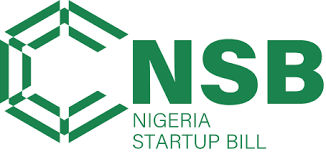There has been tremendous growth and a lot of change in the Nigerian tech ecosystem since the first tech startups launched in the 90s, and this growth must continue. Many people and techpreneurs wonder if tech can survive in a Nigeria that neither accommodates cryptocurrency trading nor ride-hailing startups like Gokada with its bans and regulations.
It has become imperative that startups exist in an environment that allows them to reach their full potential. It is the goal of the NSB to provide a legal and institutional framework for the development of tech-enabled startups in Nigeria.
While there are other challenges like poor power supply and the rising cost of petroleum products, the Nigerian tech ecosystem is thriving regardless. To better understand the areas in the tech ecosystem needing support from the Nigerian government, the Nigerian Startup Bill team collected suggestions from different techpreneurs, businesses, and startups across the country.
According to @startupbill_ng on Medium, the Nigerian government introduced the Startup Bill in 2021 with the vision of transforming Nigeria’s digital-entrepreneurial ecosystem, nurturing innovation, and supporting the growth of startups as they navigate through society while uplifting the Nigerian youth.
The Bill has seen progress as it passed the third reading in the Senate on the 20th of July 2022. A brief timeline of the Bill is as follows:
June–September 2021: The Nigerian presidency creates the Nigeria Startup Bill draft in collaboration with 30 tech leaders, NITDA officials, and the Minister of Digital Economy.
October 2021: A draft of the Bill is submitted to the Presidency and the Federal Executive Council (FEC).
December 2021: The Federal Executive Council (FEC) approves the Bill.
February 2022: Nigerian president, Muhammadu Buhari, passes the Bill to the National Assembly.
March 2022: The Bill reaches the National Assembly and is received by the Nigerian Senate.
June 2022: Lagos, Nigeria’s most populous state, announces plans to domesticate the Bill at the state level.
July 2022: Nigerian Senate approves the Bill and passes it to the House of Representatives.
The Nigerian tech ecosystem anticipates the Presidential Assent on the Bill, which would mean its substantial growth and improved contribution to the development of the Nigerian economy at large.









Leave feedback about this